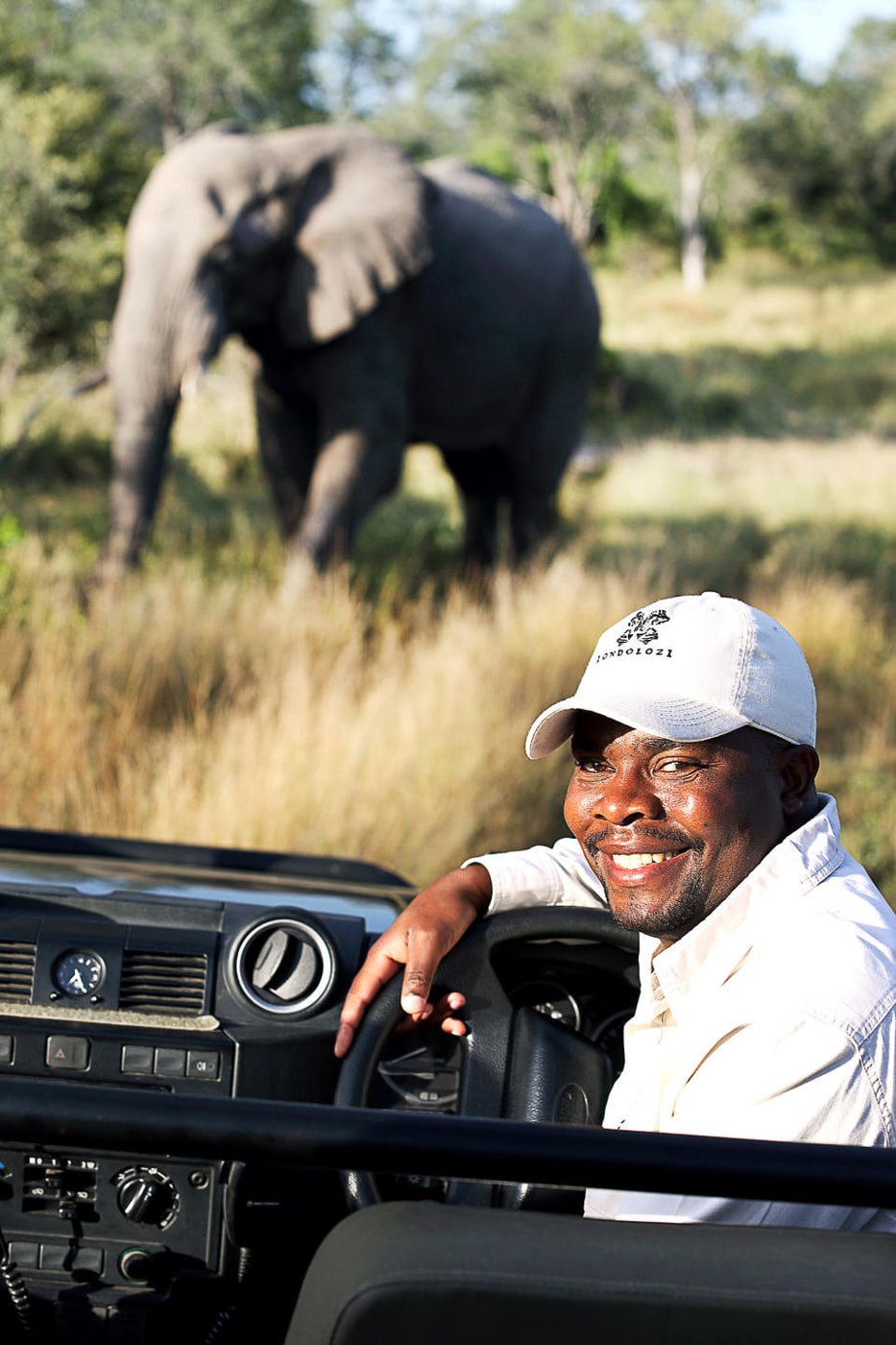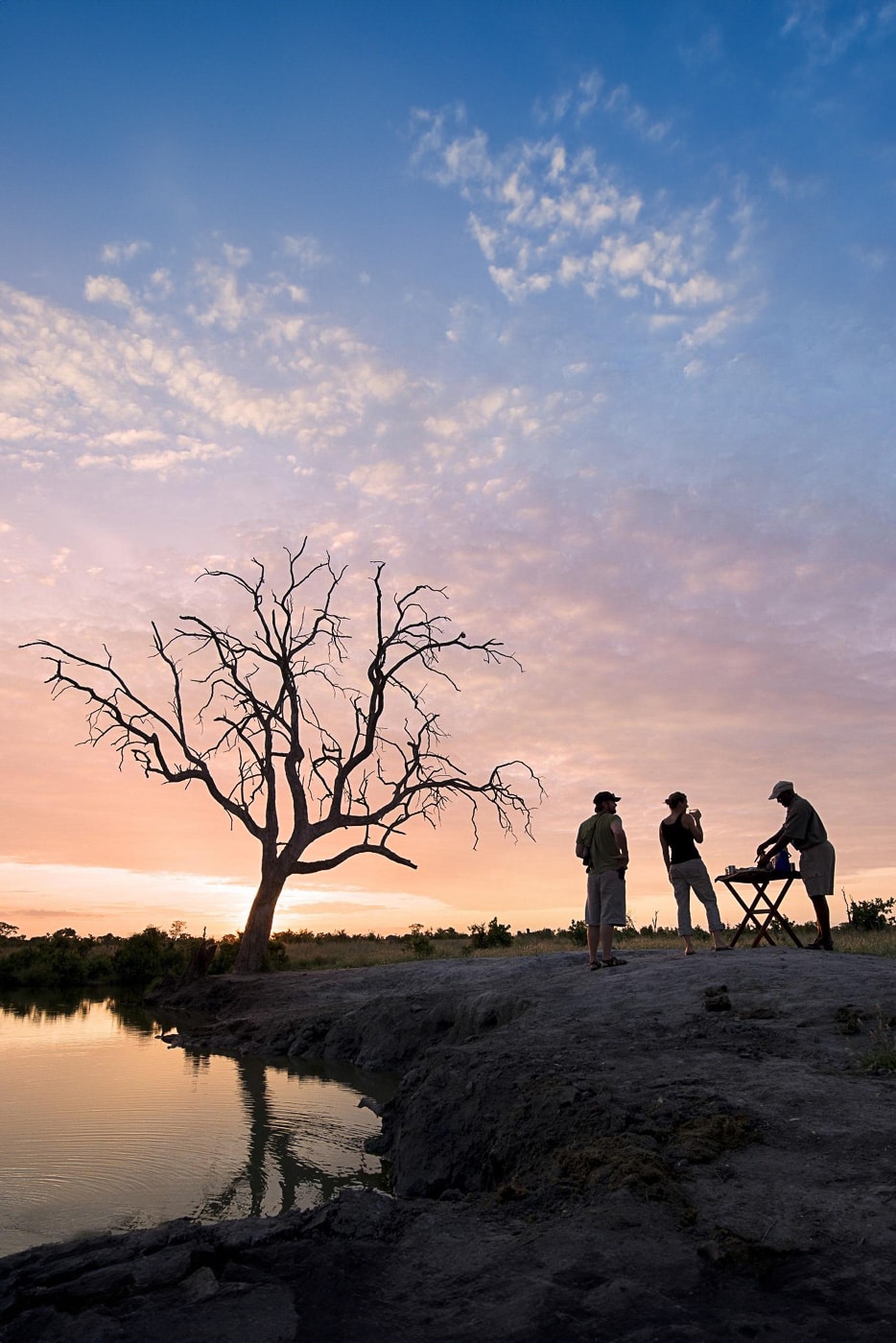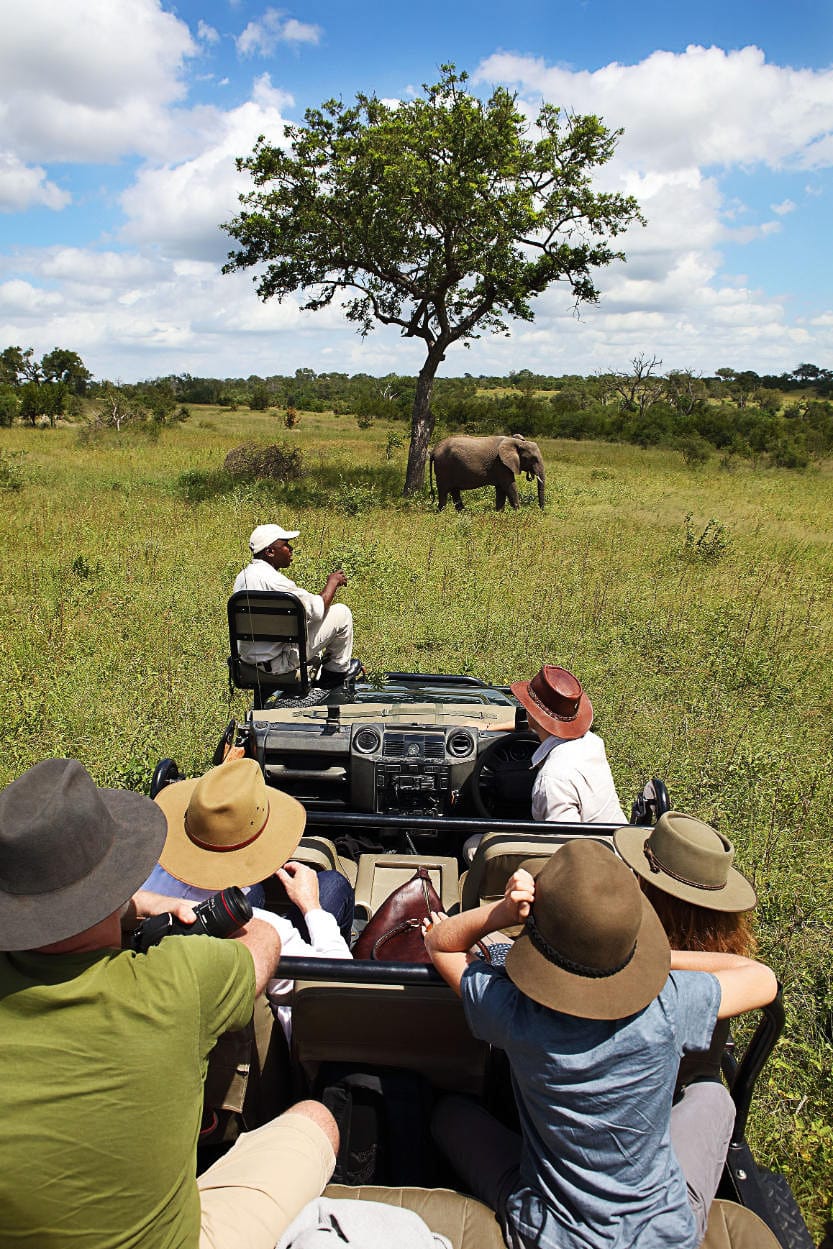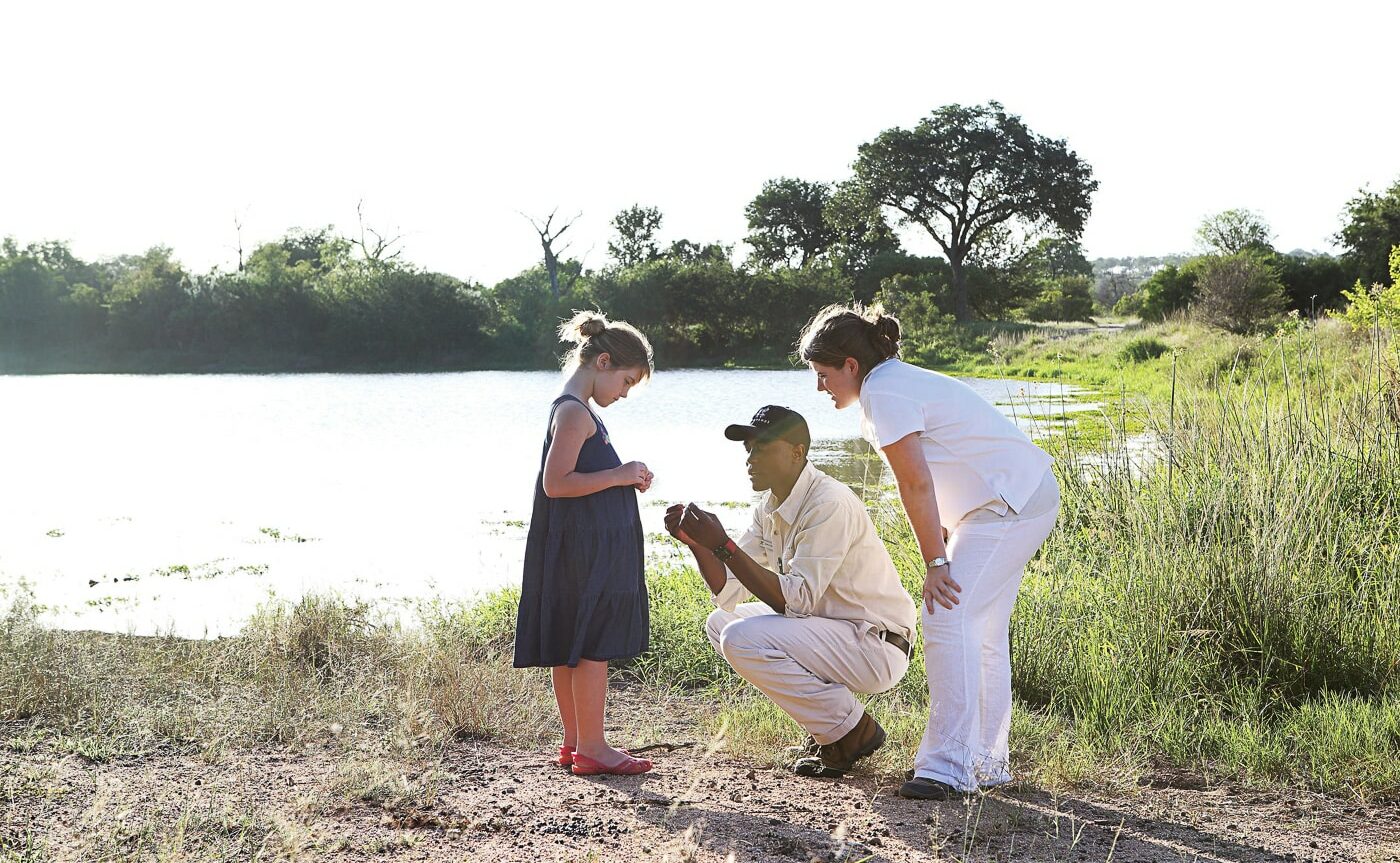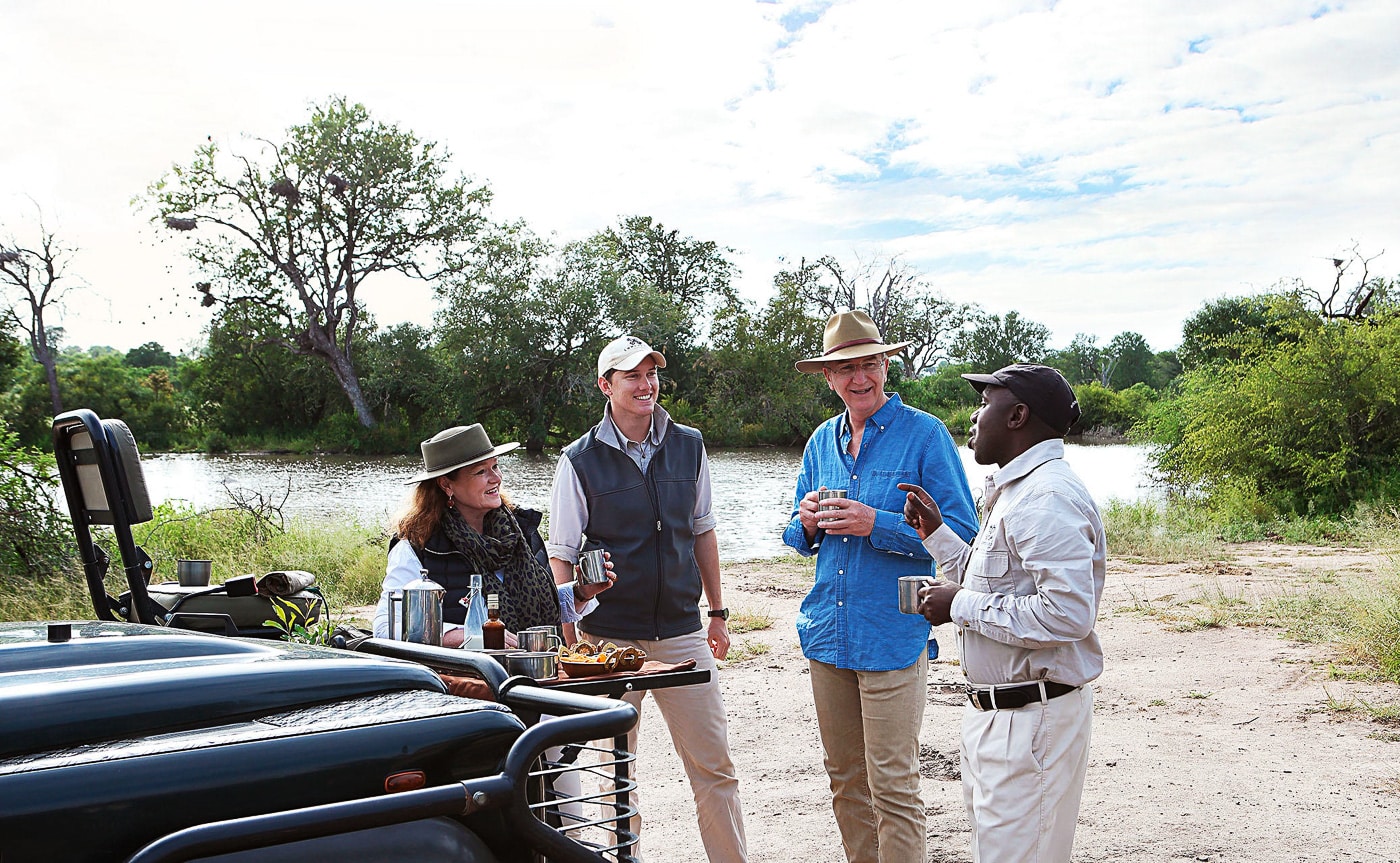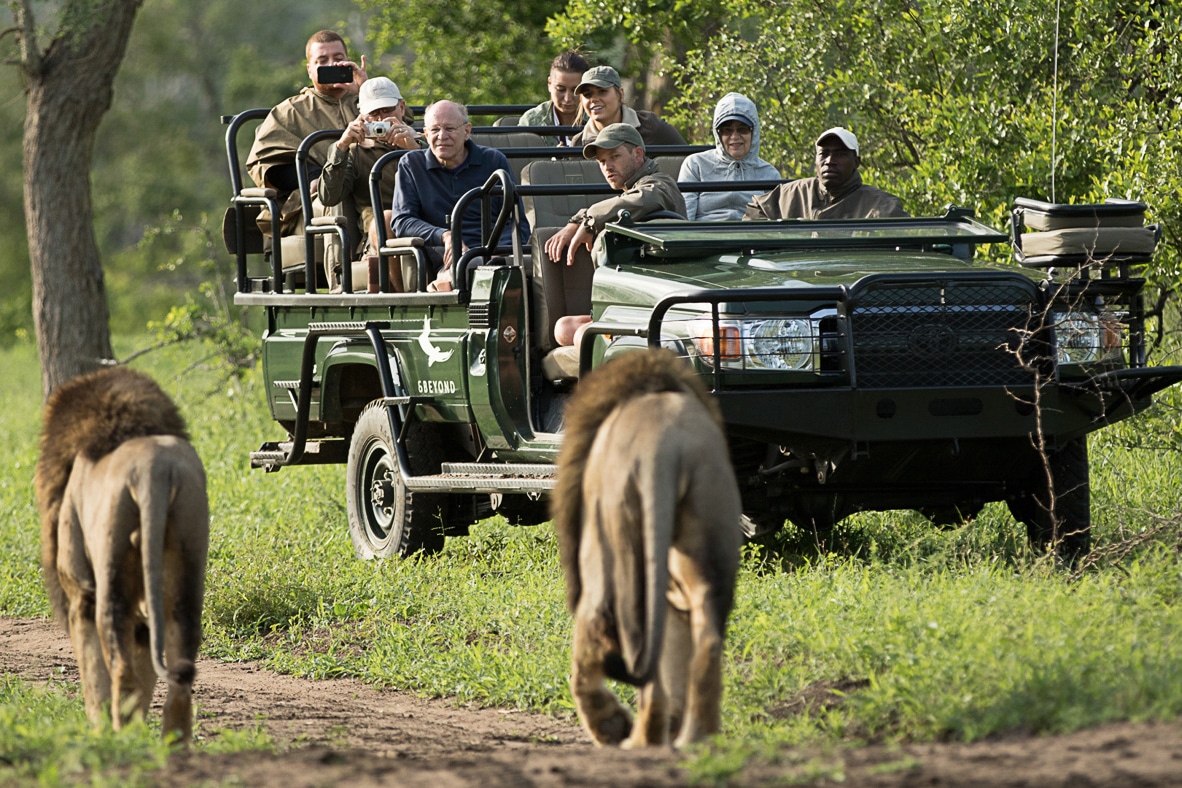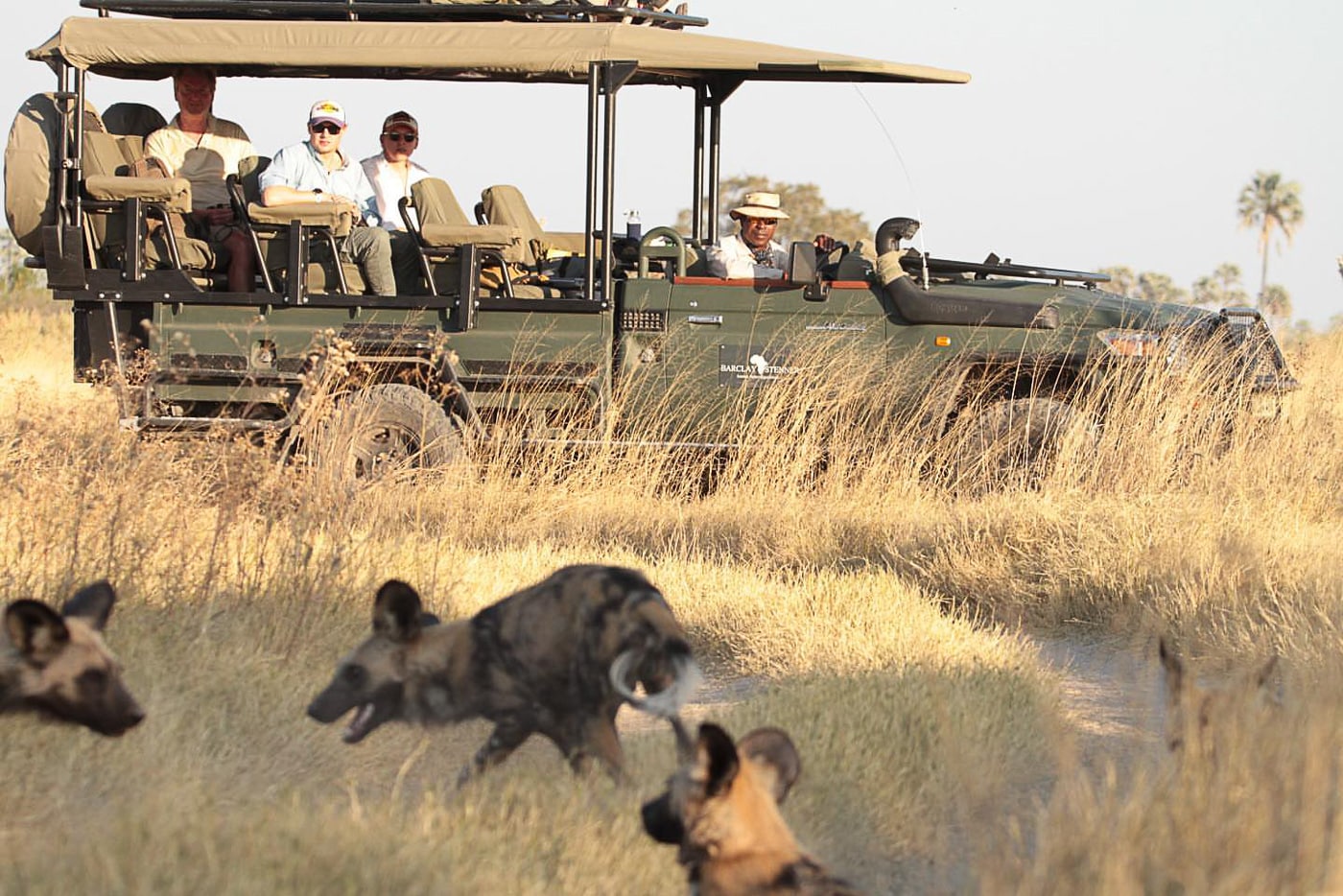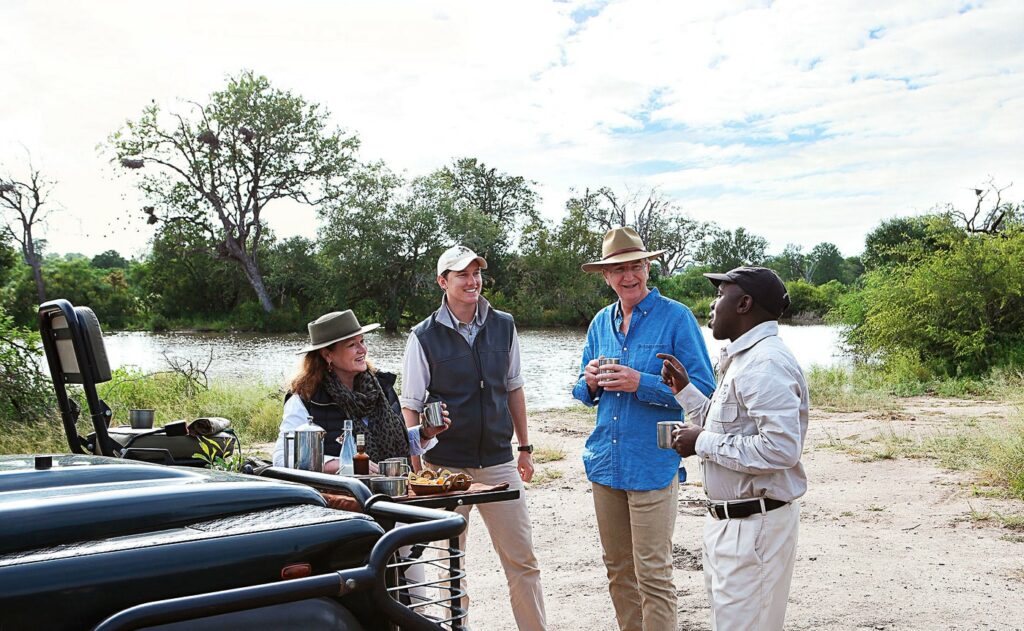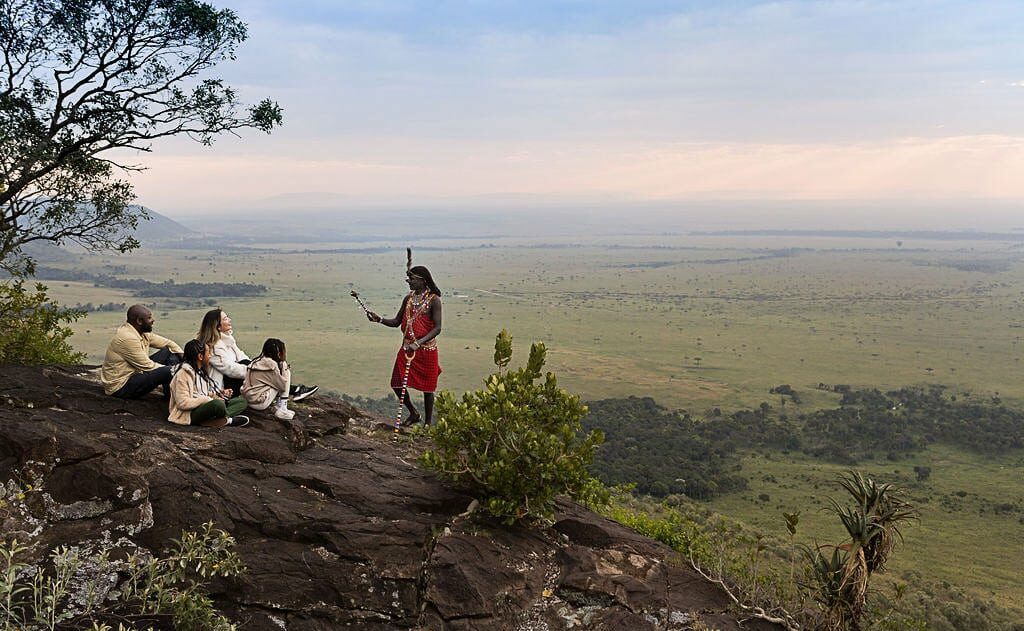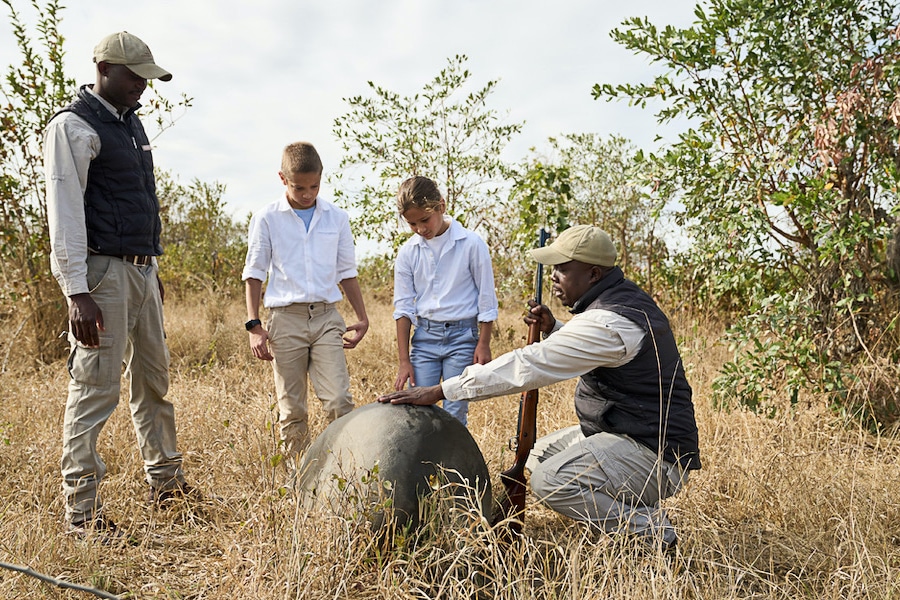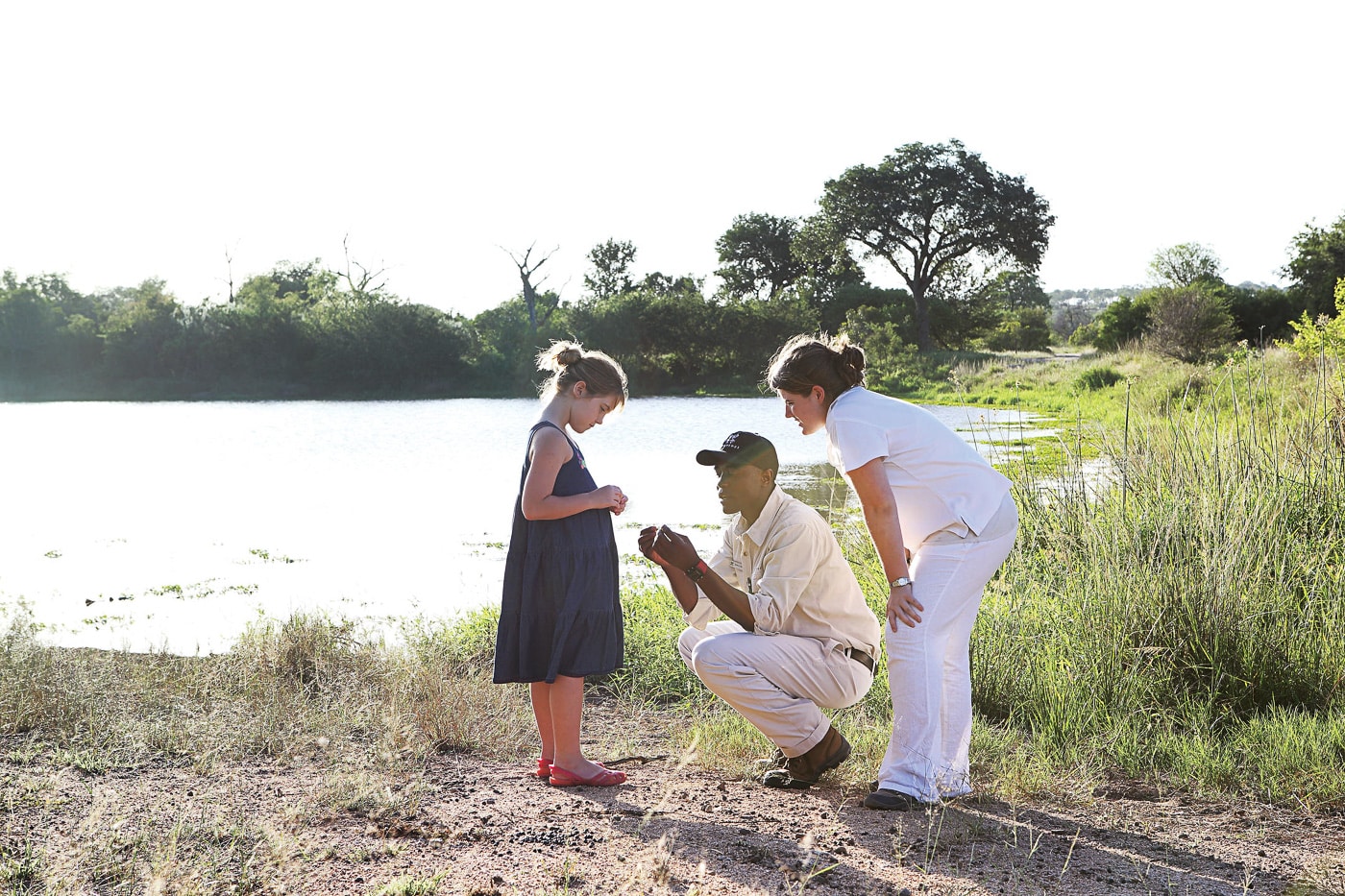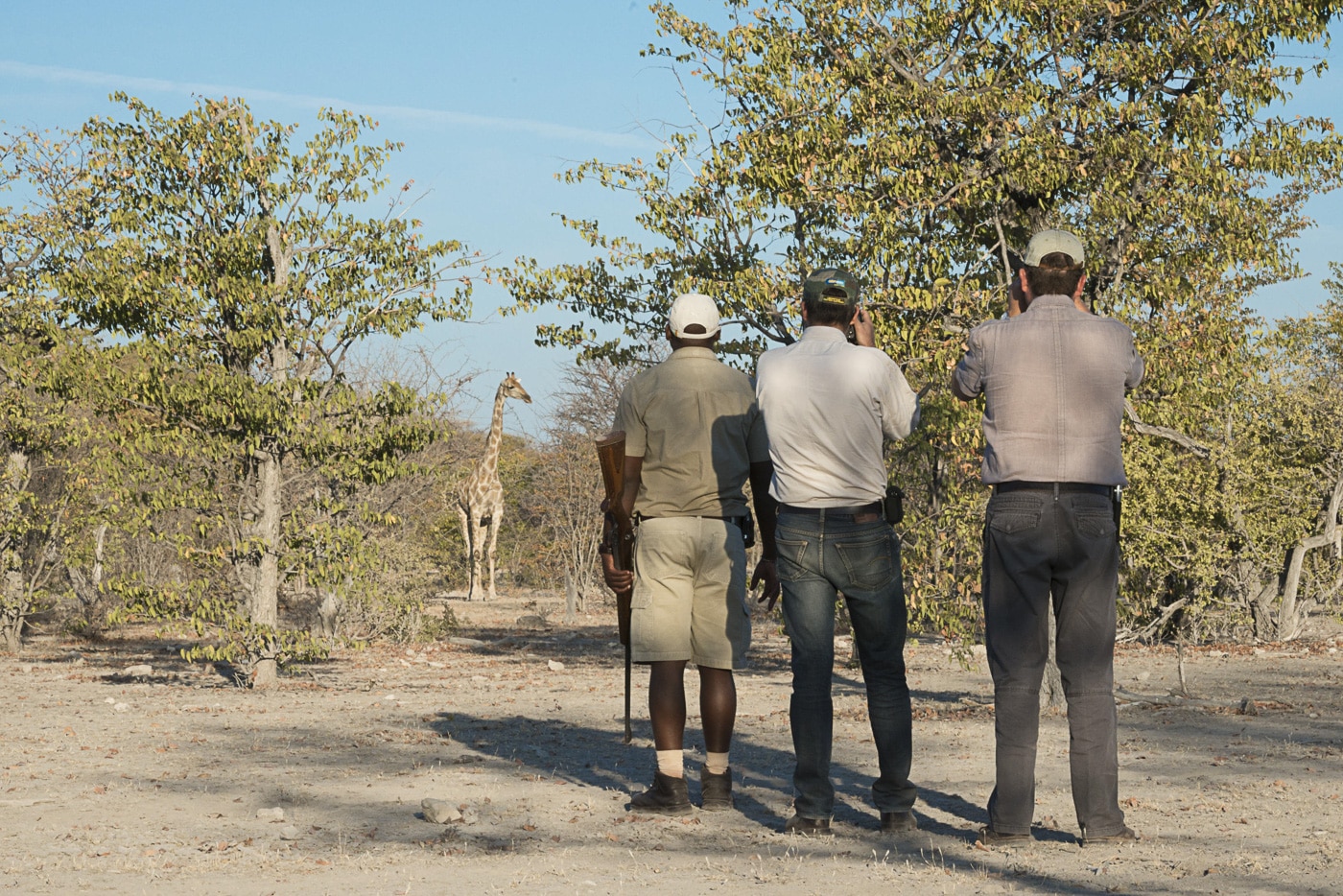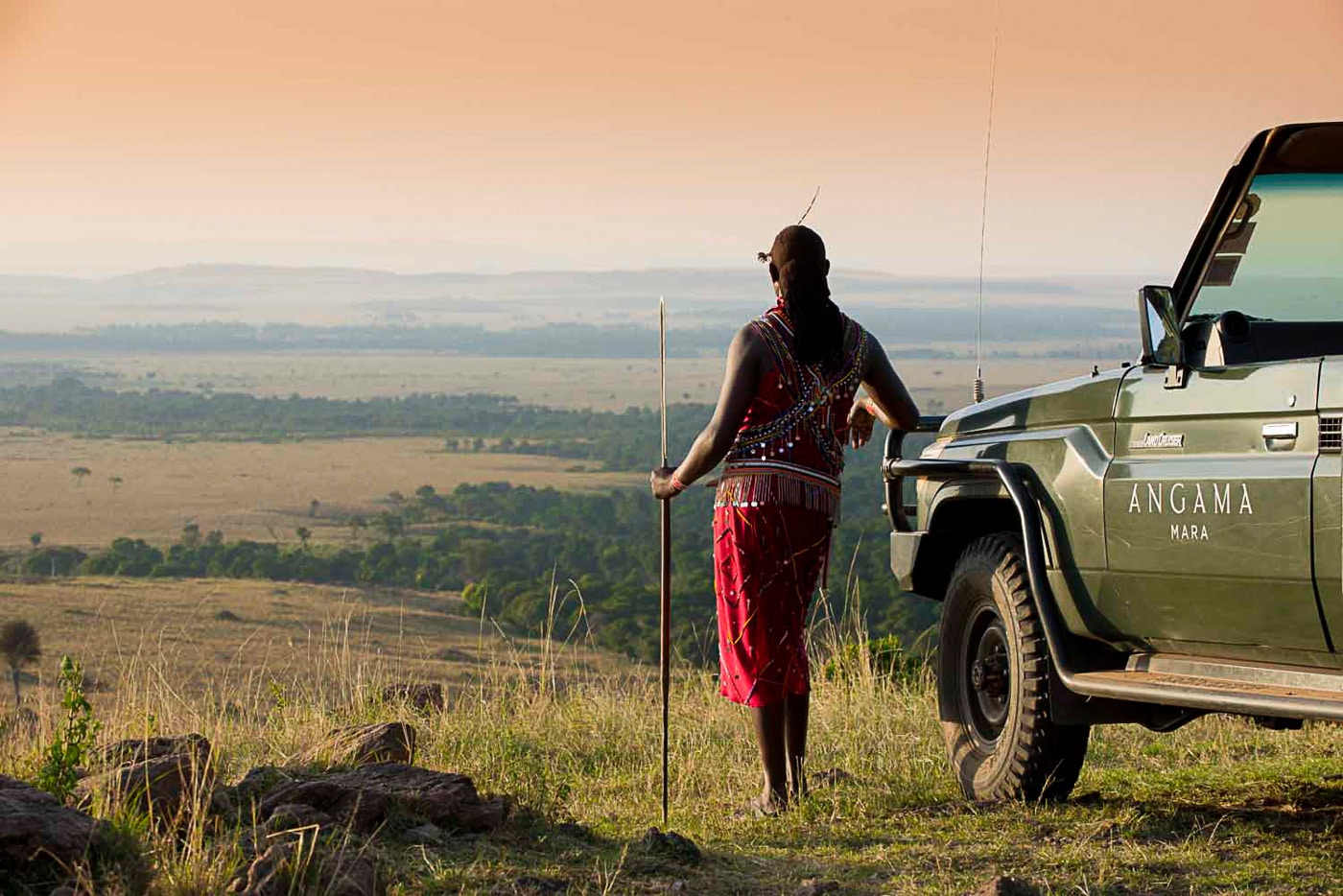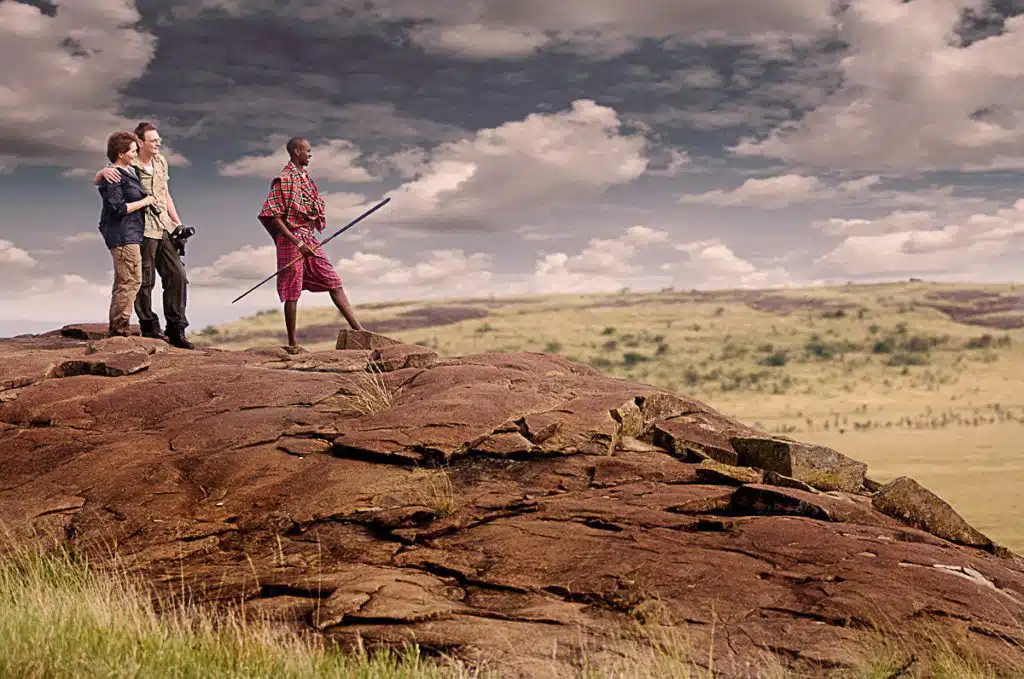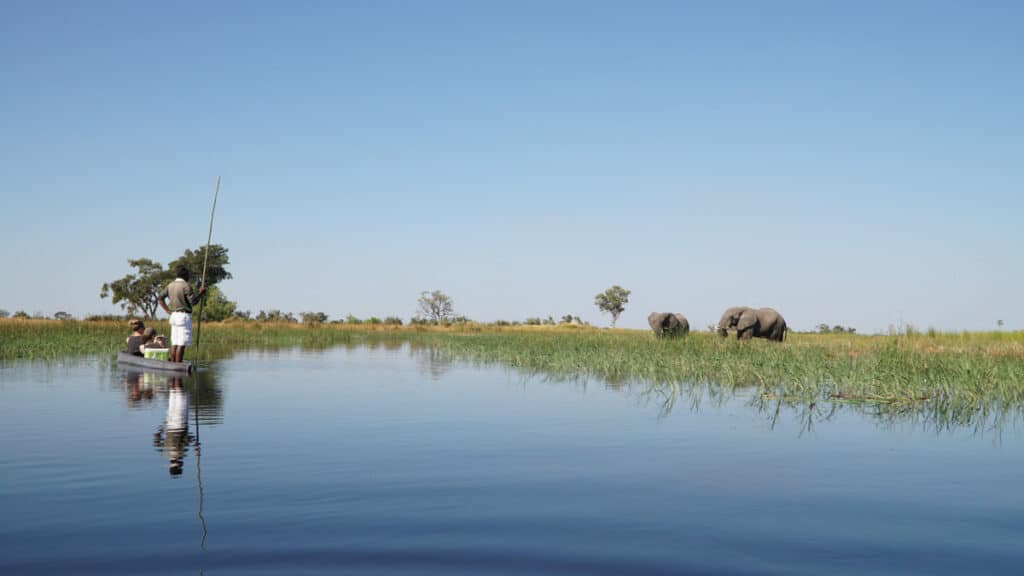EXPERTS IN THE FIELD
What Makes a Good African Safari Guide?
Imagine spending your working days in the fresh air, under a warm sun, sharing your passion with eager clients, and watching the dance of nature unfold before you. This is the life of an African safari guide.
It may seem like a dream come true, and to a select few it is, but before you quit your job and pack up for the wilds of Africa, the journey to becoming an expert safari guide is long and challenging and only suited to the truly dedicated.
With Africa’s ever-increasing standard of luxury safari travel, countries are developing their training programs, and lodges are demanding the only very best in their team of safari guides. Only a knowledgeable, experienced, and qualified guide can support his family with a career in guiding.
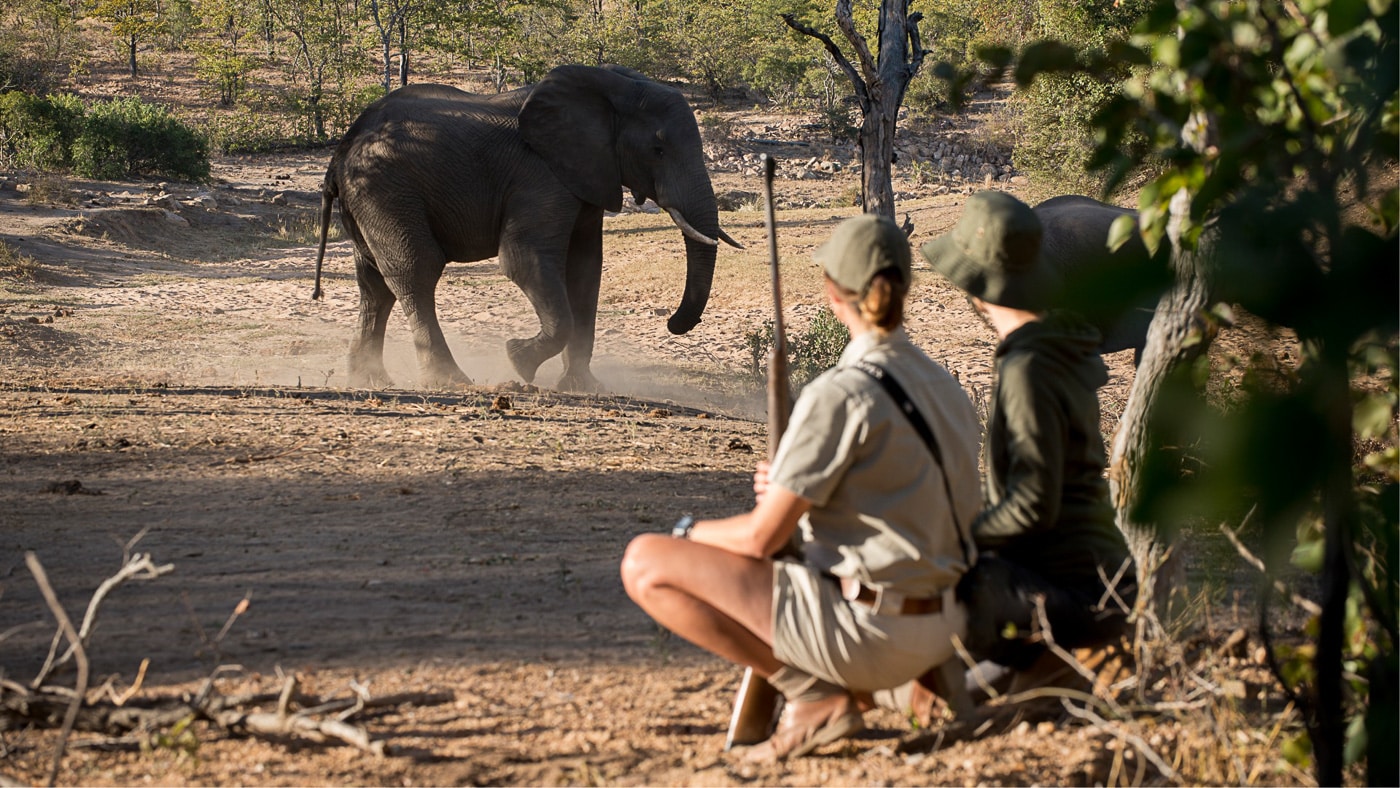
An expert safari guide can be the make-or-break of your experience.
This is true not just of African safari guides, but escorts of all kinds through a wide range of adventures. Creating a captivating, rewarding, safe and memorable journey through the bush, along waterways, into the mountains, amongst city streets or ancient ruins is the test of an adept guide; and this isn’t as simple as you might think.
Proper effective guiding takes a great deal of experience, training and dedication, particularly in the African wilderness, with qualifications sometimes taking five years or more to complete.
Each country has its own regulations surrounding guiding qualifications. For some, it is relatively brief when compared to college degrees and other career-building education, while others require five years or more of classroom and field training. This is increased when considering additional activities, including walking safaris and waterborne excursions.
A qualification in guiding is comprehensive, and identifying flora and fauna is just the beginning. Life cycles, mating and gestation facts, the symbiosis between animals and plants, even the Latin names of wildlife and their genus interconnectivity are incorporated into this extensive training. An expert African safari guide is also a botanist, biologist, naturalist, and being able to read the body language of each creature to instinctively anticipate their next move.
First aid, language, social awareness, driving skills, an acute awareness of their immediate environs and the nature that resides there; there is a vast diversity of talents required before setting out on the first game drive.
But even the most educated of students may not make the grade, the execution of a safari equally as important as the wisdom gained. These qualities can only be learned beyond the classroom, in the wildernesses of Africa.
So what makes a masterful African safari guide? Let’s begin at the beginning:
Photos: Londolozi & Somalisa Camp
Client Interaction
Lodges and camps will often ascribe a dedicated guide to each client group. They will greet you at the airport and be a permanent fixture of your entire stay. From the outset, they should be personable and helpful, offering a warm welcome, assisting with baggage, and helping you board the game vehicle for transfer to the lodge. They will have studied advance paperwork, ensuring that they are familiar not just with the name of each member of the group but also with their likes and wishes for their stay. Avid photographer? Keen birder? They are already aware. They will also understand whether anyone has a disability or extenuating consideration to be accounted for.
The drive to the property allows them the chance to fill in the blanks, building a relationship with the group, enquiring about other desires or past travels, and anything else that will enrich your experience. This will be delivered in friendly conversation rather than intense interrogation and will come completely naturally to an expert African safari guide.
At camp, they will introduce you to host staff, who will then familiarize you with life in camp, but they will never be far away, and always aware of your wellbeing and requests.
Photos: Londolozi & Cheetah Plains
Planning Your Time
Expert guides will then craft a flexible itinerary for your stay to incorporate all that you wish to enjoy in your time with them. They will not concern you with these details, but soon after your arrival will suggest their plan for your consideration, remaining adaptable to any requested alternatives.
Depending on your arrival time, they will then inform you of the first activity, its schedule, departure time, and any requirements, such as a long-sleeved shirt and suitable footwear for a walking safari.
Many camps will provide you with your own personal drinking water bottle. This ensures that you remain hydrated during activities, and eliminates the need for single-use plastic bottles. This seemingly insignificant touch is also held in the awareness of your guide. All will ensure that you have your filled bottle prior to departure, while some may even go to the extent of collecting them the night before and filling them with ice-cold water, to be waiting for you in the game vehicle the following day.
Despite it being beyond their job description, many guides will also inform you of meal times throughout the day and even the menu on offer.
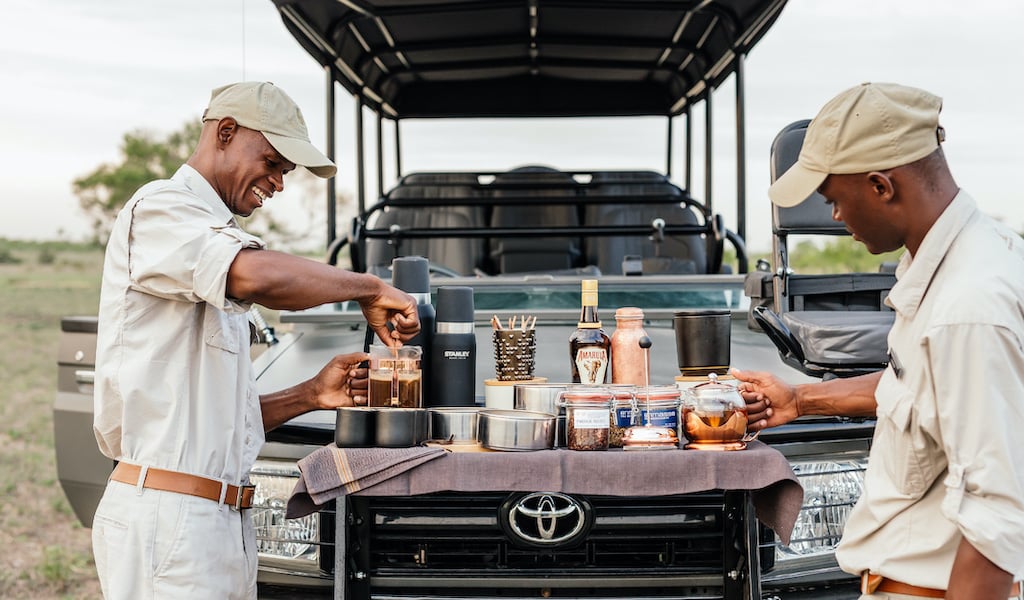
African Safari Guides in the Field
As camp gradually shrinks in the rearview mirror, an African safari guide’s work begins, and their true talents start to shine.
Navigating and driving smoothly across rough terrain takes experience, and an expert guide will have the mastery to make your game drive as comfortable as it is fulfilling. Prior to departure, they will have connected with the regional network of rangers and guides to learn of any sightings, incorporating their location into the drive’s planned route. With one ear acutely attentive to the murmurings of their two-way radio, they will inform you of what can be expected on the drive.
The tempo of the drive is also carefully monitored, and even when sudden news of a leopard reaches him, he will hurry at a leisurely pace, fast enough to reach the site, but not so much as to cause his passengers’ discomfort or alarm and miss any wildlife along the way.
Despite keeping one eye diligently upon the trail ahead to avoid potholes or fallen branches, the other is continually roaming the bush. An expert African safari guide’s ability to spot the smallest creature at a distance while expertly navigating the network of rough-hewn tracks is sublime to super-human levels.
The nature of each drive can alter significantly between clients. For some, all they wish is to see the big cats, for others, time to pause, reflect, and learn may be a priority, while photographers will want for the time, sights, and positioning to capture the perfect shot. This goes so far as being aware of lighting and the direction of the sun, and an expert guide will carefully maneuver into the prime spot, with a clear view, the sun on your back, and with the delicate balance of proximity and distance.
Photos: Ngala Lodge & Barclay Stenner
A good safari guide will also talk just enough. On safari, it is wonderful to be regaled with stories of the locale, facts about flora and fauna, and given comprehensive awareness of all that you see, but it is equally as precious to enjoy the tranquility and bask in the chorus of the bush.
For some clients, silence may be golden, and others may need constant entertainment on the trail. Expert guides will listen for your questions and very rapidly become aware of just how much information you wish to hear.
Rather than arriving at a destination, allowing you to capture your pictures, and then depart, the best guides will provide details of the species, herd, and sometimes even the individuals being observed and their family connections.
By example, they won’t simply point out a lion; they will tell you in soft tones that you are approaching one, inform you of its age, and identify its offspring or hierarchical position within the pride.
Expert Guides; Expert Hosts
The sundowner and bush coffee are magical moments when on safari, and an expert safari guide will have packed for the occasion. Before departure they will subtly request your drink of choice, check with host staff on your dietary requirements, and find an ideal location that is both safe and scenic at which to stop. Unbeknown to you, they might have liaised with other staff to establish a bush lunch that will be ready upon your arrival.
Sundowners and bush coffees – a mid-morning cup of tea or coffee with light snacks – afford a superb opportunity to converse freely. On a drive, voices are kept low and talking minimal; the drone of a vehicle is quite familiar to animals within a park or reserve, but the curious and grating ramblings of a verbose passenger can be highly alarming for them.
This pause in proceedings will give your guide the chance to expand on all he has told you. He may go into greater detail about the animals seen thus far, or discuss the surrounding seasonal flora. There might be smaller details usually missed aboard a vehicle – seed pods, tracks, or feathers – that he will share with you. Or you may simply indulge in some genial socializing. This is your time to learn all you wish to know, and your guide will be comprehensively accommodating.
Photos: Cheetah Plains & Angama Mara
Nature listens to its own rhythms, not the wishes of man, and no guarantee can be given in seeing an abundance of life or a particular species. While a guide will give you the best opportunity, they will also provide enough entertainment, by sharing their knowledge and taking in other more dependable aspects, to fill an excursion with many memorable moments.
The age of clients is also a consideration of an African safari guide. Senior travelers may be less able to undertake certain activities, but should not forego them completely. Walks and more active excursions can be adjusted to accommodate the less able, executed at a slower pace over a shorter distance.
Children, too, require additional skills. Some camps have dedicated kids’ clubs, with dedicated guides catering to young minds and short attention spans, but an expert guide will tailor a mixed-generation safari to incorporate activities or information that will keep youngsters occupied without compromising the experience for older guests.
Additional Activities
As mentioned, becoming a game drive guide is only the beginning of a comprehensive African field guide’s training. Once they have accomplished this qualification, they must then undertake several years of extensive additional training in order to lead walking or water safaris. Adding to all they have already learned, safety requirements and idiosyncrasies demand specific skills and knowledge. Walking guides must have an acute understanding of the region in order to navigate safe pathways and read the body language of the species likely to be encountered. Safety, both of their clients and the surrounding wildlife, is imperative, and every consideration is given to this end. This is also true of canoe safaris and boating activities, and it is essential that any potential hazards are preempted. Training in the classroom and in the field provides them with the acumen to determine a gamut of scenarios to provide the most rewarding experience whilst maintaining absolute security.
Although guides are adept at reading the braille of the bush, on a walking safari tracking their acute tracking skills are indispensable. They will alert you to every trace of movement, identifying lion tracks from those of leopard and hyena, tell you when they passed and in what direction, and give you a deeper comprehension of the environment in the tiniest of detail.
Photos: Cheetah Plains, Londolozi & Little Ongava
Driving a vehicle through the bush and pointing out the obvious sights is relatively easy. Even identifying the myriad creatures that dwell there can be swiftly learned.
However, your African safari guide can be the difference between a sightseeing drive and an enchanting, informative safari filled with captivating moments. Only an expert with extensive training and experience can define this difference. The best camps and lodges, those within our portfolio, are acutely aware of the positive impact of a quality guide and will go to great lengths in investing in the very best African safari guides.
Through our many travels, we not only assess the standard of each property, but also the quality of guiding. Ultimately, it is the safari for which people travel as opposed to the accommodation, and even a mediocre camp can still hold magical potential for astonishing game drives. It is in the hands of your African safari guide that the unforgettable moments lie, and with the right guide this is assured.
Photo: Angama Mara

